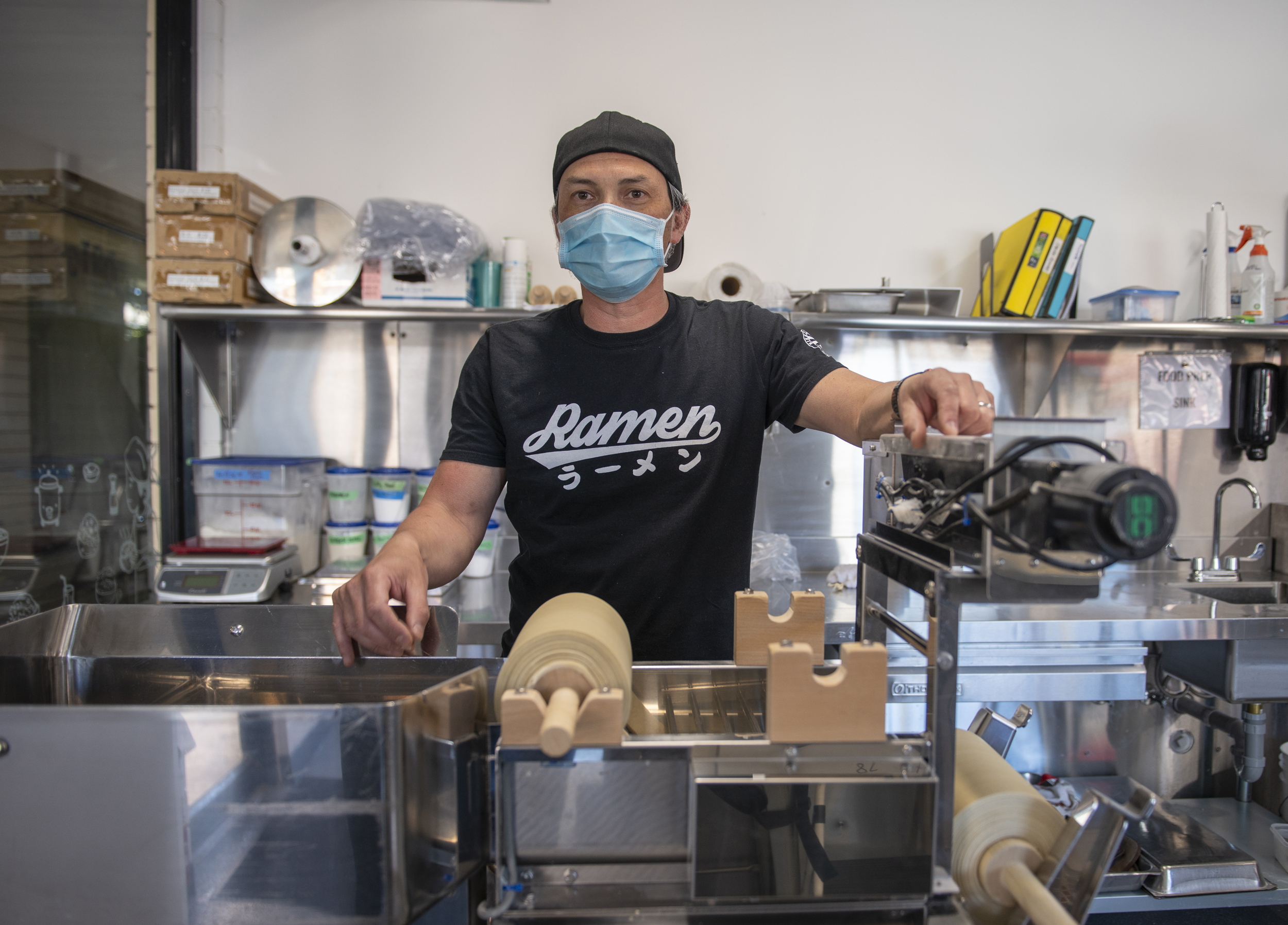Greg Masuda
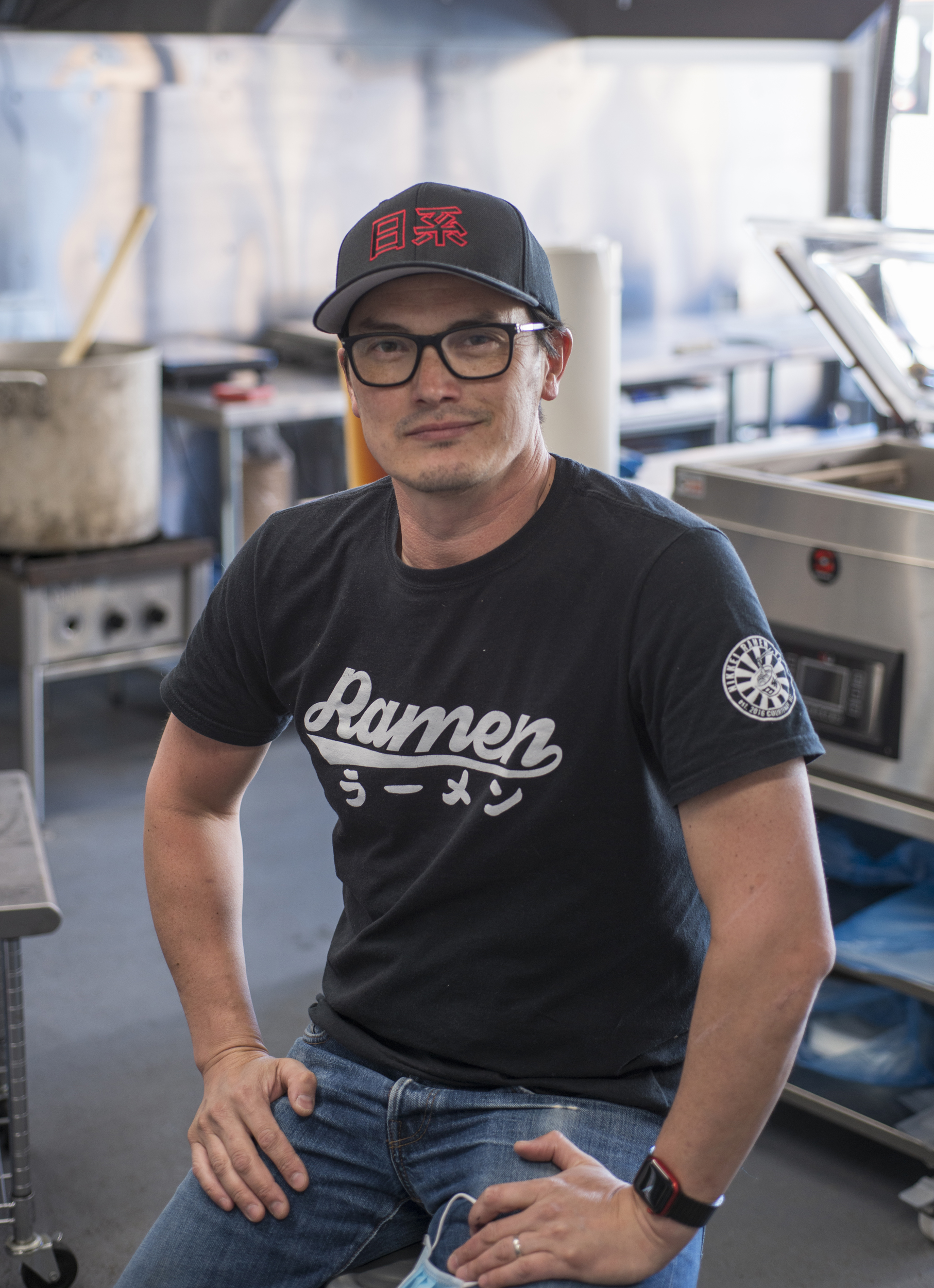
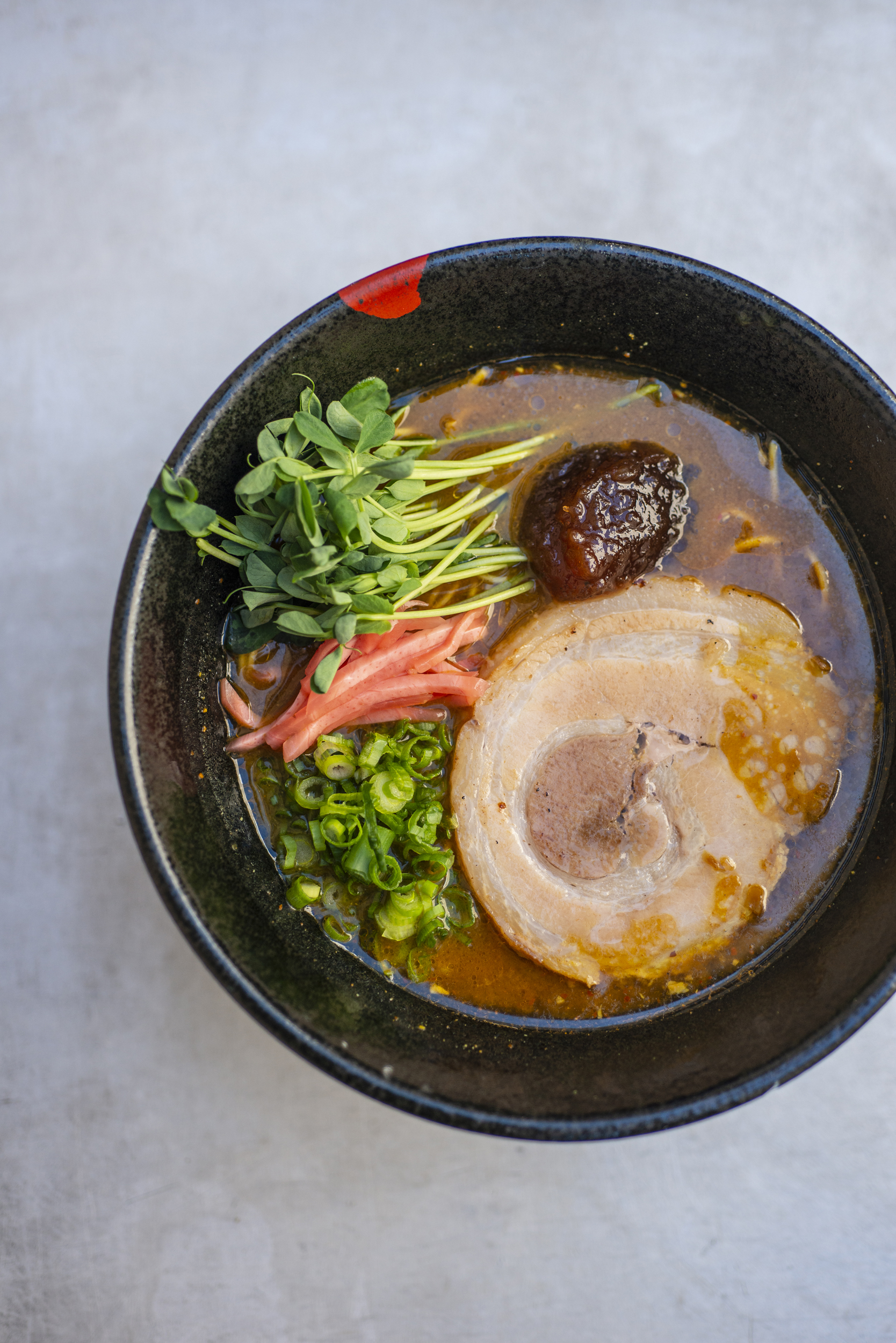
Greg Masuda’s route to becoming a ramen entrepreneur was as long and winding as the noodles he makes at his Comox Valley ramen shop. After pivoting from engineer to accountant to filmmaker, Masuda now owns and operates Nikkei Ramen-ya, which he and his wife Erin launched in 2016 in a downtown Courtenay storefront.
Opening a ramen shop is a common and acceptable way to change careers in Japan, says Masuda. “It’s an opportunity for salary men to get out of their lifelong commitment to a company and try to make it on their own.” Taking inspiration from these career-changing salary men, Masuda has drawn from his own varied experiences to season his ramen venture with creativity, business acumen and a strong sense of social justice.
When IBM calls…
An Edmonton native, Masuda received a job offer from IBM in Toronto after completing a mechanical engineering degree at the University of Alberta. He worked in the technology industry for the next ten years, until a layoff prompted him to return to school. He studied accounting but quickly realized that he wasn’t passionate about the subject. Then, a friend who was taking a film course suggested that he might enjoy filmmaking, so he jumped at the opportunity.
He enrolled—not just in one class, but in a full-time film studies program in Vancouver. “I don’t like testing things,” Masuda laughs. “I’m always all in.” For the next seven years, he made documentaries that tackled social issues, including youth homelessness, the internment of Japanese Canadians during the Second World War and development in Vancouver’s Downtown Eastside.
Yet, despite the positive notices his films received, after he met his wife and they settled in the Comox Valley, he concluded he would never be able to contribute enough to his family financially as a filmmaker.
The worst business ever?
When an acquaintance suggested that he open a ramen shop, Masuda was skeptical. “I never wanted to open a restaurant,” he insists. “The margins are so tight. It’s the worst business ever.” Somehow, though, envisioning this new business not as a restaurant but as a ramen shop made it seem more viable. And, he adds, “I really missed the food I could get in Vancouver.”
The creative challenge appealed to Masuda, too. In making ramen, he explains, the only rule is that the noodle has to be an alkaline wheat noodle. Variations in broth, seasonings and toppings are all acceptable.
Masuda decided from the start that he would learn to make his own noodles. “Noodles are like the crust on the pizza. If the crust is no good or you’re buying a packaged crust, what’s the point? You’re not doing the best you could do.” After what he describes as a long learning curve, Masuda and his staff now make noodles every day.
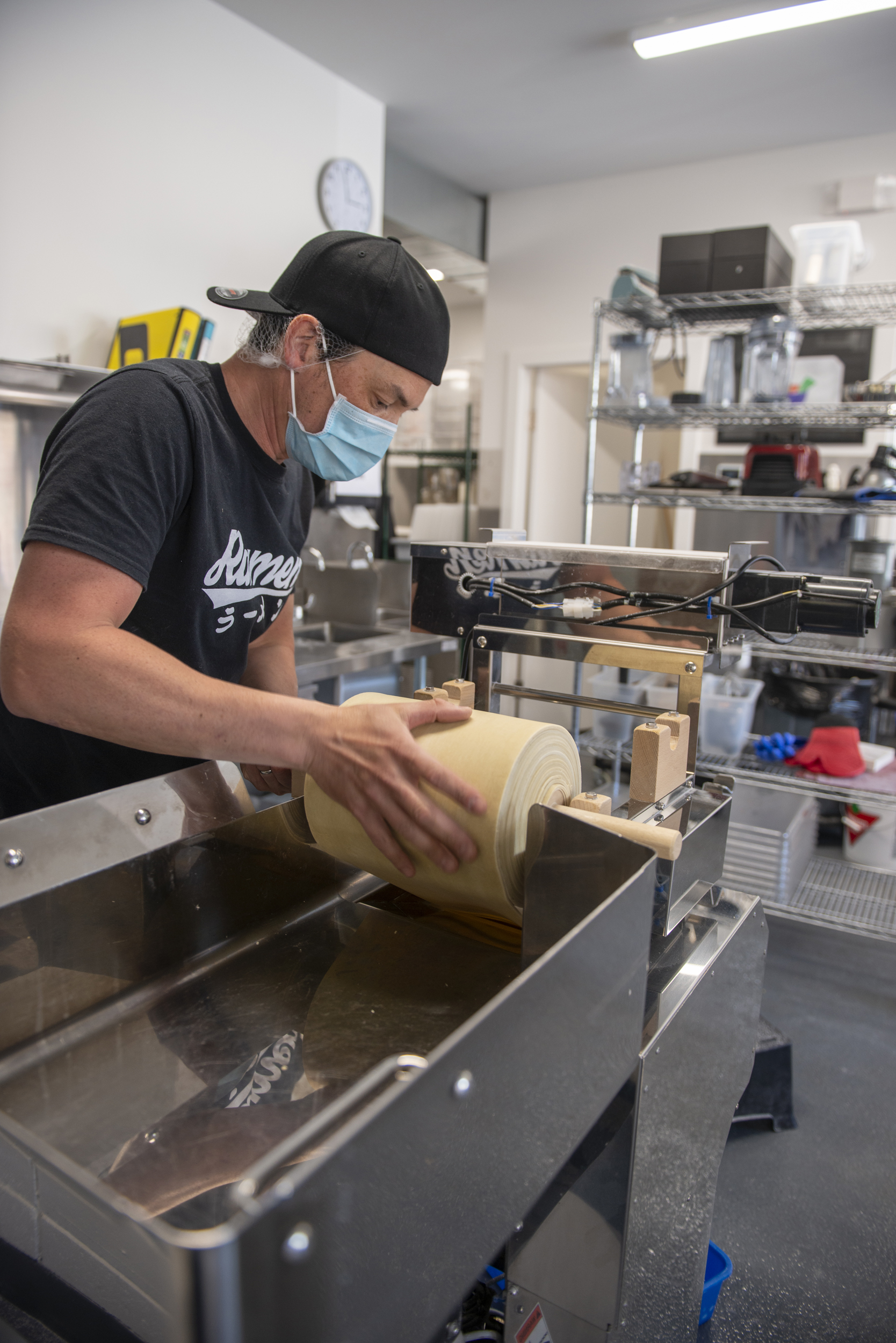
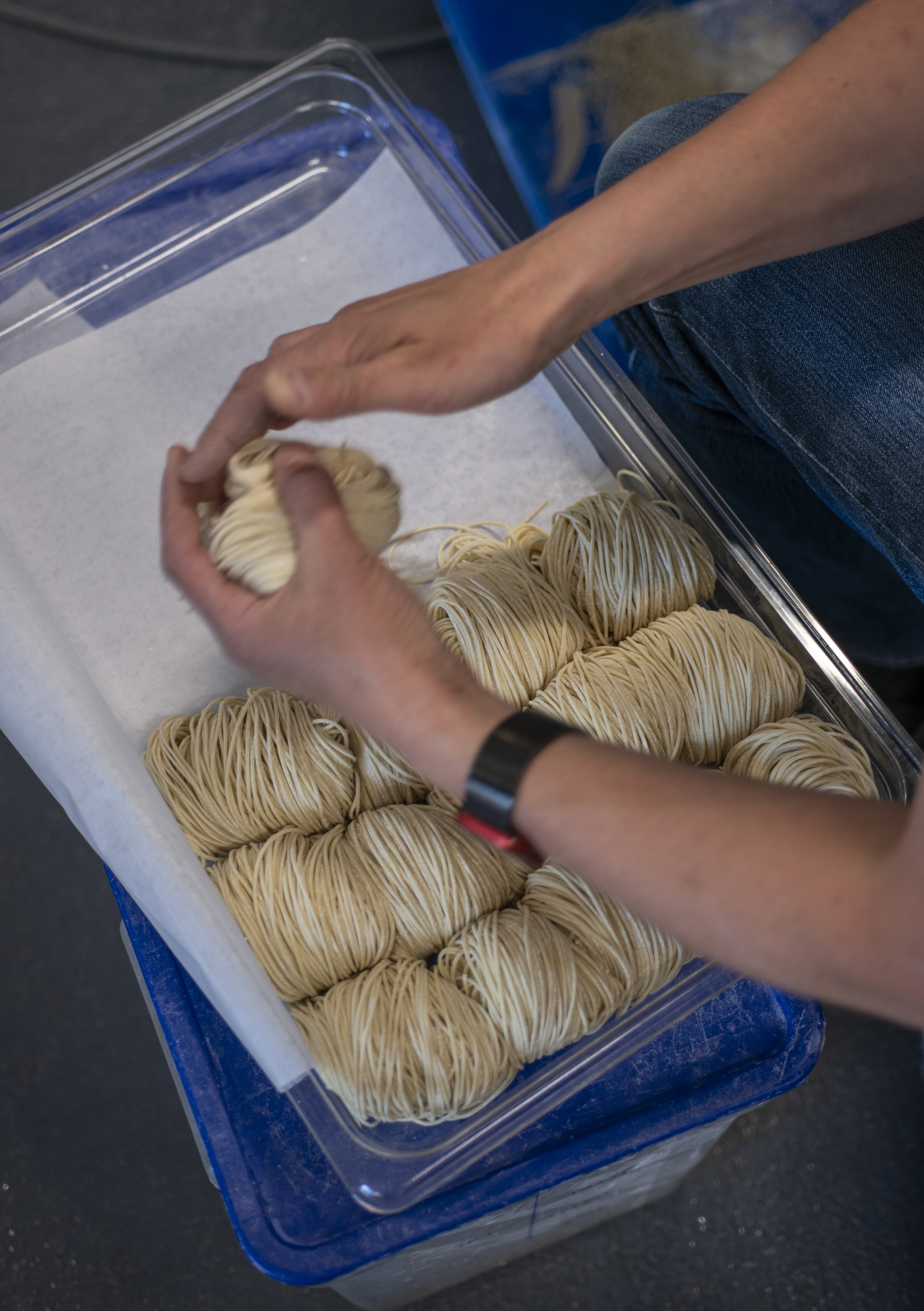
Once satisfied with the quality of the noodles and of his basic broths, he began getting more inventive. A popular dish at Nikkei Ramen-ya is Gekikara Karaage Miso Paitan, or fried chicken ramen. Masuda formulated a chicken-based paitan, a thick, creamy broth, to stand up to the crispy chicken. “It sells out pretty much every day,” Masuda says. “People gobble it up.” He also developed a curry ramen, because “I love Japanese curry even more than ramen!”
Paying a living wage
Beyond the food, Masuda is committed to building a sustainable business, which for him means ensuring a positive work environment and paying his staff a living wage. “I disagree with the tipping culture and how women in the industry need to sexualize themselves to make maximum tips,” he says. He decided that staff at Nikkei Ramen-ya would not accept gratuities.
But Masuda says he had difficulty working out how to pay a living wage in a sustainable way. One day, though, he and his wife were dining at a Seattle restaurant where a 20% surcharge was added to the bill specifically to pay the staff a fair wage. “And I immediately thought, ah, this is how I’m going to do it. I’m going to calculate how much I would have to raise my prices and then we’ll just be transparent about that with the customers.”
He determined that increasing prices 9.1% would enable him to pay the defined living wage in the Comox Valley. And since the restaurant doesn’t take tips, “I’m not asking anybody to pay more than they would anyway.”
Nikkei Ramen-ya is now one of only 150 businesses in British Columbia certified as a Living Wage Employer. Masuda says that the response from his staff and the community has been overwhelmingly supportive.
Years ago, when Masuda was laid off from his tech industry job, it was the last time he ever worked in a cubicle. In retrospect, he says, “That was one of the best things that ever happened to me.” And if you’ve sampled the carefully crafted ramen at Nikkei Ramen-ya, you might agree: it’s one of the best things to happen to the Comox Valley, too.
